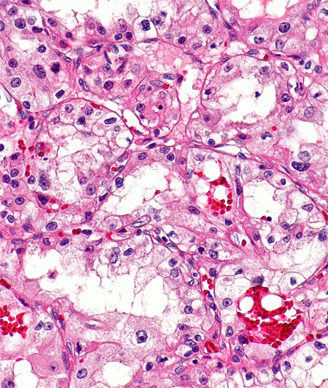ctDNA May Predict Chemo Efficacy in Stage II/III Colorectal Cancer
Disease-free survival benefits with chemotherapy appears to be more prominent in patients with colorectal cancer who are minimal residual disease–positive compared with those minimal residual disease–negative disease.
“BESPOKE is one of the first and largest studies in the United States looking at a tumor-informed circulating tumor DNA’s ability to inform adjuvant chemotherapy decisions in patients with both stage II and III colorectal cancer,” according to Pashtoon Murtaza Kasi, MD, MS.

Disease recurrence and outcomes with adjuvant chemotherapy appear to be influenced by minimal residual disease (MRD) status detected via ctDNA among patients with stage II/III colorectal cancer (CRC), according to findings from the BESPOKE study (NCT04264702) presented during the 2024 Gastrointestinal Cancers Symposium.
“BESPOKE is one of the first and largest studies in the United States looking at a tumor-informed circulating tumor DNA’s ability to inform adjuvant chemotherapy decisions in patients with both stage II and III colorectal cancer,” Pashtoon Murtaza Kasi, MD, MS, medical oncologist and researcher at Weill Cornell Medicine and New York-Presbyterian Hospital, said in his presentation.
Of 295 evaluable patients with stage II (n =130) and stage III (n = 165) CRC, 6.9% (n = 46) of stage II and 22.4% (n = 37) of stage III patients were MRD-positive as identified by ctDNA. There was a significant association between MRD positivity and worse disease-free survival (DFS) outcomes overall (HR, 20.8; 95% CI, 10.0-43.4, P <.0001), as well as within each subgroup (stage II: HR, 25.7; 95% CI, 6.8-96.7; stage III: HR, 18.1; 95% CI, 7.3-45.1).
The median DFS was not reached post-surgery among patients who were MRD-negative vs a median DFS of 15.98 months (range, 13.77-20.22) in patients who were MRD-positive.
Among patients who were MRD-positive, those who received adjuvant chemotherapy experienced longer DFS compared with those in the observation group (18.7 vs 6.7; HR, 3.9; 95% CI, 1.3-11.5; P =.01). Comparatively, there was no observed benefit to DFS with adjuvant chemotherapy in the MRD-negative group (HR, 1.1; 95% CI, 0.3-3.9; P =.89).
“Regardless of the fact if you got [chemotherapy or] didn't get [chemotherapy, there were] very intriguing results: [the] same disease-free survival of nearly 9 months. A benchmark for the pairing of novel therapeutics and clinical trial designs on a large cohort of patients with stage II and III colon cancer,” Kasi explained.
ctDNA clearance at 12 weeks was observed in 39.1% (n = 18) of patients who were MRD-positive, and longer DFS was associated with ctDNA clearance compared with those who remained positive (24.2 months vs 13.8 months; HR, 0.4; 95% CI, 0.1-1.0; P =.045). However, these patients still had worse DFS than those who were ctDNA-negative at 4 and 12 weeks (HR, 22.5; 95% CI, 6.8-75.0; P <.0001).
Disease recurrence was observed in 44.4% (n = 8) of patients who had ctDNA clearance, and all 8 patients were ctDNA-positive before relapse was detected radiologically.
“We also show some very interesting dynamics of ctDNA clearance. The ones who sustain clearance, not surprisingly, are the ones who are all disease-free several years out before the ones who are not transiently clear. Interestingly, 85% of the time, you have molecular recurrence by 15 months. So, as we counsel patients or expect what to see in trials, 15 months is the time point from any kind of molecular recurrence,” Kasi said.
Kasi also highlighted that ctDNA testing provided patients with more feelings of confidence. A reported 73% of patients said that ctDNA results reduced anxiety about cancer recurrence, and 87% felt they were receiving the right treatment after receiving their ctDNA results. Moreover, 92% of patients would continue using ctDNA testing to monitor cancer, and 96% valued the additional information they received from ctDNA results.
Reference
Kasi P, Aushev V, Ensor J, et al. Circulating tumor DNA (ctDNA) for informing adjuvant chemotherapy (ACT) in stage II/III colorectal cancer (CRC): Interim analysis of BESPOKE CRC study. J Clin Oncol 42, 2024 (suppl 3; abstr 9). doi: 10.1200/JCO.2024.42.3_suppl.9